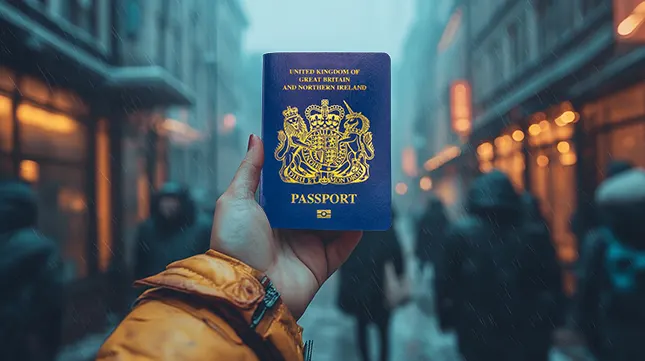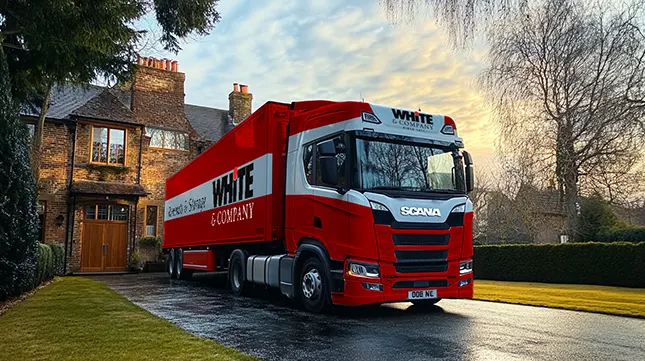Moving to the UK from New Zealand: A Comprehensive Guide for Returning Expats

Embarking on the journey back to the UK after years spent in New Zealand is both thrilling and daunting.
The UK beckons with its rich history, diverse culture, and a sense of familiarity that only home can offer.
Reuniting with family and old friends, exploring new career paths, and indulging in the UK’s unique seasons are just a few of the many joys that await you.
The prospect of strolling through historic towns, enjoying a traditional British pub, or simply relishing the shorter distances between places can reignite your appreciation for the UK.
While the transition may present challenges, like adapting to a different climate or navigating post-Brexit changes, the rewards are plentiful.
Whether you’re returning for personal reasons, educational opportunities, or professional growth, the UK stands ready to welcome you back with open arms.
In this guide, we’ll address common concerns and provide valuable insights to help you prepare for your move home.
Start Planning Your Return Early

Every move needs to start somewhere and yours should begin with plenty of planning.
Just as you meticulously planned your move to New Zealand, preparing for your return to the UK requires careful consideration and ample time.
While unforeseen circumstances like urgent family matters or job relocations may necessitate a swift move, giving yourself as much lead time as possible will ease the transition.
Your relocation’s complexity largely depends on factors like the duration of your stay in New Zealand and the assets you’ve accumulated there.
Crafting a detailed plan will help you address both the emotional and logistical aspects of moving.
Here are the most important things to include in your plan:
- Start by setting a realistic budget and timeline that covers all aspects of the relocation.
- If you’ve spent several years abroad, you’ll need to manage the sale or rental of property and dispose/sell vehicles.
- Settle any outstanding financial obligations such as credit cards or loans.
- Book your flights and make necessary travel arrangements well in advance.
- Declutter your belongings, decide what to bring back and what to leave behind, and consider UK customs regulations and shipping costs.
- Research reputable international moving companies, request quotes, and schedule your move with the one that best fits your needs.
- Arrange temporary accommodation in the UK. Consider short-term rentals to give yourself time to find the right long-term home.
- Consult a financial advisor about transferring overseas pensions or resuming contributions to UK pension schemes.
- Check whether your visas suit your personal circumstances and those of those travelling with you.
- Ensure all passports are valid and gather necessary documents like marriage and birth certificates well in advance.
- Notify HM Revenue & Customs (HMRC) of your return using form P85 to settle your tax affairs.
- Open a UK bank account as soon as possible.
- If you obtained a foreign driver’s license, you might need to exchange it for one in the UK.
Of course, there will be more issues to sort out, but this is a good start to help you with your return home journey.

Adjusting to life back in Britain may be trickier than you think.
It’s common for returning expats to experience reverse culture shock upon arriving back in the UK.
Even though it’s home, adjusting to life after years abroad can take time.
The UK has evolved during your absence, and so have you.
Be patient with yourself as you reacquaint with local customs, societal norms, and even the pace of life.
You might notice changes in technology, language usage, or social attitudes that weren’t prevalent before.
Reconnecting with old friends and family can be both exciting and challenging.
People grow and change, and relationships may need time to readjust.
Initiate contact by arranging casual meetups, such as grabbing a coffee or a pint at a local pub.
These low-pressure settings can help rekindle relationships organically.
Don’t hesitate to expand your social circle by joining clubs, volunteering, or attending community events in your new UK-based location.
Websites like Meetup offer opportunities to connect with people who share your interests.
Being prepared for the adjustments necessary for you to settle back into “Old Blighty” will certainly help the transition.
Understanding Visa Requirements

You will need to have a good understanding of your visa requirements.
For British citizens returning from New Zealand, the good news is that you don’t need a visa to settle back in the UK.
Your valid British passport grants you the right to live and work without any immigration restrictions.
However, if you’re bringing a non-British spouse, partner, or children, they’ll need to secure the appropriate visas to reside in the country legally.
The requirements vary based on their nationality and relationship.
The UK government provides comprehensive guidance on family visas for spouses, partners, and children.
Ensure you also start this process well in advance, as gathering the necessary documentation and awaiting approval can take several months.
It’s crucial to adhere strictly to the visa application guidelines to avoid delays or refusals.
Adjusting to the UK’s Cost of Living

The cost of living in the UK is rather different to that of New Zealand.
Unfortunately, the United Kingdom has experienced a notable increase in the cost of living over the past few years.
Inflation, energy costs, and the fallout from COVID-19 and Brexit have all affected the British economy.
Reacclimatising to the UK’s cost of living is an essential part of your financial transition.
While some expenses may be higher or lower than in New Zealand, having a clear understanding will help you budget effectively.
The UK generally offers a lower cost of living compared to New Zealand in areas like groceries, dining out, and transportation, especially outside major cities like London.
According to Numbeo, a cost-of-living comparison site:
- Consumer Prices in New Zealand are 5.4% higher than in the United Kingdom (without rent)
- Consumer Prices including Rent in New Zealand, are 2.3% higher than in the United Kingdom
- Rent Prices in New Zealand are 5.8% lower than in the United Kingdom
- Restaurant Prices in New Zealand are 0.9% higher than in the United Kingdom
- Grocery Prices in New Zealand are 24.0% higher than in the United Kingdom
- Local Purchasing Power in New Zealand is 10.0% lower than in the United Kingdom
These figures suggest that while rent might be slightly cheaper in New Zealand, other daily expenses are higher compared to the UK.
Adjusting your budget accordingly will help smooth your financial transition back here in the UK.
Housing Differences and Property Market Insights

There are some major differences between the housing markets in these two countries.
Securing a place to live is yet another priority when moving back.
The UK property market differs from New Zealand’s, notably in property sizes and prices.
Homes in the UK, especially in urban areas, tend to be smaller and have less outdoor space than the more significant properties common in New Zealand.
The average house price in the UK is around £292,000, whereas in New Zealand, it’s approximately NZD 927.284 (£430,000).
While property prices have seen significant growth in both countries, the UK’s market has unique regional variances.
According to the Office for National Statistics, UK house prices have risen by about 31% over the past five years.
Before making a purchase, explore property listing websites like Rightmove or Zoopla to research areas and prices.
If you’re unsure about where to settle, consider short-term rentals through platforms like Airbnb to give yourself time to decide.
Enrolling Your Children in UK Schools

Enrolling your children in school is an important step.
If you’re returning with school-aged children, enrolling them in the UK education system is a critical step.
The UK offers a range of educational options, but admission isn’t always guaranteed at the nearest school due to capacity issues.
It’s advisable to research schools in your desired area and understand their admission criteria.
The UK and New Zealand education systems have similarities, but there are differences in curricula and term dates. To help your children adjust:
- Contact the Local Education Authority: They can provide a list of schools with available places.
- Visit School Websites: Many schools offer virtual tours and admission details.
- Prepare Required Documents: Have copies of your children’s previous school records and any special educational needs assessments.
For more detailed guidance, visit the UK government’s page on school admissions.
There are several handy online tools to find the best schools in your new area, such as Snobe.
Plus, your local county council will have all the information you need to secure a place at a good school near you.
Accessing UK Healthcare through the NHS

Make sure you are registered with the NHS upon arriving in the UK.
One advantage of returning to the UK is regaining access to the National Health Service (NHS).
There has been so much discussion about the state of the NHS. However, it continues to deliver some of the best free-of-charge treatments in the world.
To utilise NHS services when you arrive home:
- Register with a Local GP: Use the NHS GP finder tool by entering your postcode.
- Provide Proof of Address: You’ll need a UK address to register.
- Transfer Medical Records: If possible, bring a summary of your medical history from your New Zealand healthcare provider.
- Find your closest hospital: The NHS website can also find the nearest hospital to your area.
As a returning resident, you’re entitled to free healthcare, including GP visits, hospital treatments, and emergency services.
Bringing Your Pets Home

There are several things to consider when returning to the UK with a pet.
Pets are family, and bringing them back to the UK involves adhering to specific regulations to ensure their safe entry.
The UK government outlines requirements for importing pets on its pet travel page.
Key steps to consider include:
- Microchipping: Your pet must be microchipped with a chip that meets ISO standards.
- Rabies Vaccination: Administered at least 21 days before travel.
- Animal Health Certificate: Obtained from an official veterinarian no more than 10 days before entry.
- Tapeworm Treatment: Required for dogs 24-120 hours before arrival.
Failing to meet these requirements could result in your pet being quarantined.
Consider using professional pet relocation services like Jetpets or Airpets International to handle the logistics of bringing your beloved pet home to England.
Sorting Out Your Tax Obligations

Ensure your taxes are properly managed.
Understanding your tax responsibilities is crucial to avoid penalties.
The UK tax year runs from April 6 to April 5, so timing your return can simplify your tax affairs.
Moving close to the start of the tax year minimises the need for complex ‘split-year’ calculations.
- Notify HM Revenue & Customs (HMRC): Inform them of your return using the P85 form.
- Seek Professional Advice: Tax laws can be intricate, especially concerning foreign income and assets. Consult a tax advisor who is familiar with UK and New Zealand regulations.
- Check National Insurance Contributions: Ensure you’ve met the requirements for state benefits and pensions. Visit the HMRC website for details.
Closing your tax affairs in New Zealand before leaving is essential to prevent future tax liabilities, penalties, or legal issues.
It ensures all your obligations with Inland Revenue are settled, avoids misunderstandings, and simplifies your financial responsibilities back home.
Reopening or Setting Up UK Bank Accounts
Having a UK bank account is essential for everyday transactions, bill payments, and receiving income.
If you closed your accounts before moving to New Zealand, you’ll need to open a new one.
- Traditional Banks: Institutions like HSBC and Barclays offer accounts to returning residents. You’ll typically need proof of identity and a UK address.
- Digital Banks: Consider app-based banks like Monzo or Starling Bank, which may have more flexible requirements.
- International Banking Services: Some banks offer accounts that can be set up from abroad, easing the transition.
Ensure you have all necessary documentation, such as your passport and proof of address, to facilitate the process.
Currency Exchange Services
It is surprising that so many people don’t consider using a currency exchange company or (FX) firm to transfer their cash home and rely on using their bank for this purpose.
By utilising a specialised currency exchange service, you can enhance the value of your transferred funds, save on unnecessary costs, and enjoy a more efficient and secure transaction as you relocate back to Britain.
Invariably, you will have sold a property, your car, and possibly larger items of furniture, so you will need to transfer money home to the UK at some point.
There are some key benefits to using FX services:
- Competitive Exchange Rates: FX companies typically provide better exchange rates than traditional banks. Even a small difference in rates can result in substantial savings when dealing with large amounts.
- Lower Fees: These companies often charge lower transfer fees or may waive them entirely for significant transactions, reducing the overall cost of moving your money.
- Expert Guidance: FX specialists can offer personalised advice on market trends, helping you choose the optimal time to exchange currencies and potentially maximise your return.
- Risk Management Tools: Services like forward contracts or limit orders allow you to lock in favourable rates or set target rates, protecting you against currency fluctuations.
- Faster Transfer Times: FX companies often facilitate quicker transfers compared to banks, ensuring your funds reach your UK account promptly.
- Security and Regulation: Reputable FX providers are regulated by financial authorities and use secure systems to protect your funds during the transfer process.
- Dedicated Customer Service: Personalized support can make the process smoother, addressing any concerns you might have during the transfer.
There are a number of companies out there, and you have nothing to lose by chatting with them and finding out how they can help you with your cash transfers.
Managing Your Pension

You will need to make sure you are fully on top of you pensions when moving to the UK from New Zealand.
Your retirement savings are a significant consideration.
If you have a New Zealand KiwiSaver account, options include:
- Leaving It in New Zealand: Your funds can remain invested, but currency exchange risks and tax implications must be considered.
- Transferring to a UK Pension Scheme: This can be complex due to differing regulations. The UK recognises certain overseas pension schemes, but transfers may incur taxes and fees.
For UK pensions, check your entitlement and consider making voluntary National Insurance contributions to fill any gaps from your time abroad.
The Pension Advisory Service offers free guidance and is an excellent place to start if you are confused or unsure about how to transfer your pensions.
Shipping Your Belongings Back

There are a number of steps you can take to ensure shipping your belongings home goes smoothly.
Transporting your household items requires careful planning.
Engage with reputable international movers who are members of organisations like the British Association of Removers (BAR) to ensure professionalism and adherence to standards.
- Customs Regulations: Familiarise yourself with the UK’s import rules, especially regarding prohibited items.
- Shipping Timeframe: Sea freight from New Zealand can take 8-12 weeks. Plan accordingly for essentials you’ll need immediately upon arrival.
- Insurance: Comprehensive transit insurance will protect your belongings should something go wrong.
Simplify Your Move with White & Company

Returning to the UK is a significant life event, and partnering with an experienced international removals company like White & Company can alleviate much of the stress.
With over 150 years in the industry, we offer:
- Comprehensive Services: From door-to-door service from NZ to the UK, packing to customs clearance and delivery, White & Company will get your personal effects home safely.
- Secure Storage Solutions: If your new home isn’t ready, we provide safe storage facilities for long or short-term.
- Professional Affiliations: As members of BAR, FIDI, and OMNI, we adhere to the highest standards.
Contact White & Company today for a personalised quote.
Let us handle the logistics so you can concentrate on starting your new chapter back home.
Embrace the opportunities that await you in the UK, from reconnecting with loved ones to exploring new career paths. Welcome home!

Max is a seasoned writer and blogger in the real estate and home moving sectors, as well as a knowledgeable source of information for expatriates living and working abroad. His detailed insights have helped thousands of people move and live abroad with greater simplicity and ease.
Posted in: News
Leave a Comment (0) ↓




